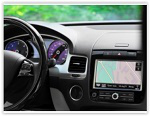
Following an extensive three day on-site audit, Stadium’s new hi-tech manufacturing facility in Dongguan, China has passed the ISO/TS16949 extended scope audit, covering the manufacture of printed circuit board assemblies and final product assemblies, wiper electrical control assemblies and global positioning system (GPS) antenna for automotive applications.
ISO/TS16949:2009 applies to the design, development and production of products in the automotive space, a strategically important market sector for the Stadium which delivers end-to-end wireless connectivity solutions for OEMs in automotive, telematics, fleet management, asset tracking, smart home, wearables and security systems. Stadium has unparalleled knowledge and experience in developing and manufacturing world class GSM and GPS wireless devices for automotive OEMs.
Charlie Peppiatt, CEO at Stadium Group, comments, “With this further extended scope certification at our new facility in China, Stadium demonstrates that we can provide our automotive sector customers with a wide variety of wireless product manufacturing (from PCBA and antenna build to complete final product assembly) and delivery of highly flexible, complex supply chain solutions to ensure competitiveness on a global scale”
“Achieving the extended scope ISO/TS16949 accreditation at our new Dongguan facility is an important step on our journey to become a leading global provider of design-led integrated electronic technology solutions, supported by regional design and manufacturing centres of excellence.”
Stadium’s Warrington facility has also achieved TS16949 accreditation assuring customers consistent quality and expertise from the UK and China.
TS16949 is an ISO technical specification aimed at the development of a quality management system that provides for continual improvement, emphasizing defect prevention and the reduction of variation and waste in the supply chain. It is based on the ISO 9001 standard and the first edition was published in March 2002 as ISO/TS 16949:2002. It was prepared by the International Automotive Task Force (IATF) and the “Technical Committee” of ISO.